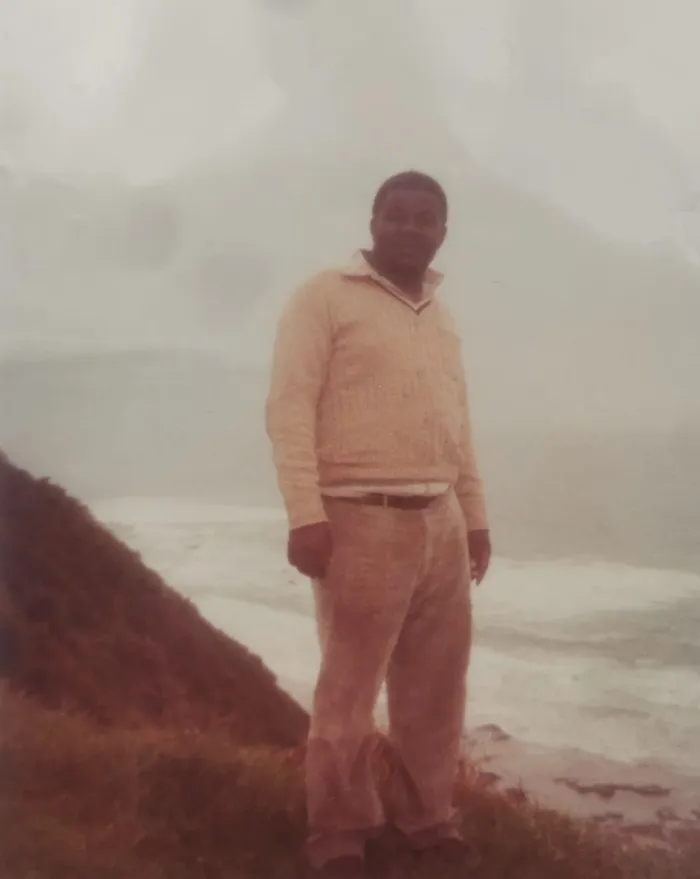Justice for the Cradock Four: Nombuyiselo Mhlauli's plea as Ramaphosa acts

Sicelo Mhlauli, a member of the Cradock Four liberation Struggle activists who were killed in 1985. His widow, Nombuyiselo, is still crying for justice.
Image: Supplied
Nombuyiselo Mhlauli, the elderly widow of one of the Cradock Four activists who were killed by the apartheid operatives, said she was waiting with keen interest for the start of President Cyril Ramaphosa’s recently announced commission of inquiry.
Ramaphosa on Wednesday announced the establishment of a commission that would probe the alleged political interference, which prevented the National Prosecuting Authority (NPA) from prosecuting perpetrators of atrocities during apartheid.
The Office of the President released a statement saying the commission would investigate allegations of improper influence in delaying or hindering the investigation and prosecution of apartheid-era crimes that have persisted from previous administrations.
“Through this commission, President Ramaphosa is determined that the true facts be established and the matter brought to finality,” read the statement.
Mhlauli’s husband, Sicelo Mhlauli, Matthew Goniwe, Fort Calata, and Sparrow Mkhonto became famously known as the Cradock Four after they were killed in June 1985 for their political activities.
Some families, including those of the Cradock Four, approached the courts complaining about the violation of their constitutional rights to justice.
“This follows the Presidency’s statement in February 2025 in support of a commission that will look into the delays in the prosecution of these cases.
“Government has maintained that these outstanding matters would be most appropriately addressed through the Commission of Inquiry, and will, therefore, be included in the commission’s terms of reference,” read the statement.
Mhlauli, 73, a retired senior public servant based in Cape Town, believes that the commission will reveal who obstructed the NPA from implementing the Truth and Reconciliation Commission (TRC) recommendations.
The TRC had, after completing its investigation, recommended that those perpetrators who failed to come forward and disclose their role in the murders that were committed against freedom fighters be brought to justice.
The Cradock Four were among many whose murders were not accounted for, although the names of those who committed them were disclosed in the TRC.
Ramaphosa came up with the commission after allegations that certain leaders of the ANC may have obstructed the NPA's work.
“I would be really disappointed because the comrades that were denied their human rights were also members of the ANC, of which we expected the ANC to hold them in their hands as families and investigate what happened,” Mhlauli said.
She stated that her husband loved the ANC and believed they were fighting for a better life for all.
“If the ANC was part of that (political interference), then that would be a great disappointment.”
Mhlauli stated that she had been waiting for more than 40 years to see justice for her husband and his comrades.
She said even the money that was given to the families of apartheid victims was nothing to repair the loss of their loved ones.
“The payment was not given to us according to the TRC recommendations, and we were just given the blanket amount of R30 000 while the cost of living was too high,” she said.
Calata’s son, Lukhanyo Calata, who is a veteran journalist, said the families of those who were killed by the apartheid regime were left in the forgotten past, while those who were in exile came back to enjoy the fruits of the liberation Struggle.
He said every day, the family members of the murdered liberation Struggle activists were disappointed with the ANC-led government.
According to Calata, the commission should focus its attention on the former presidents Thabo Mbeki and Jacob Zuma’s administrations to establish who interfered with the NPA’s work and “basically prevented the prosecution of our fathers’ killers”.
He said all of the police officers who were implicated in the Cradock Four murders were denied amnesty by the TRC in 1998.
“TRC recommended that they be prosecuted, and we expected that they be prosecuted because the law required that anybody who was denied amnesty would be prosecuted.
“We continue every day to be disappointed, but we also learn that the ANC was not interested in the well-being of the people in this country.
“They were only interested in themselves and making sure that they enriched themselves,” said Calata.
Political analyst Ntsikelelo Breakfast accused the ANC of refocusing on the crimes of apartheid, including recently launched inquests into the deaths of Inkosi Albert Luthuli and Griffiths Mxenge, just to regain its political support.
“Some are asking the questions, why now?
“The question that must be answered is what happened to the findings of the TRC. Were they fully implemented?
“What about people who got away with murder, such as some members of the National Party who refused to go to the TRC, like PW Botha.”
He said the likes of Calata deserve answers as to why his father was killed without his killers being prosecuted, while former president FW de Klerk died without showing remorse for the apartheid crimes.
“Interestingly, the ANC is doing this now after it has lost support,” said Breakfast.
Former TRC's investigative unit head, Advocate Dumisa Ntsebeza, said the TRC’s Amnesty Committee ended up with about 300 cases involving perpetrators who were denied amnesty because they did not make a full disclosure of their role in the crimes, while others refused to apply for amnesty and, therefore, should have been prosecuted.
“It was clear that if you did not get amnesty, you should be prosecuted, but we had a situation in 2003, after all the evidence had been heard, nothing was done in line with our recommendations.
“When I was asked what measures to be taken, I recommended that there needs to be a commission of inquiry focused on the cases of political interference,” Ntsebeza told the SABC news on Thursday morning.
Attempts to get a comment from the ANC were unsuccessful at the time of deadline.
bongani.hans@inl.co.za